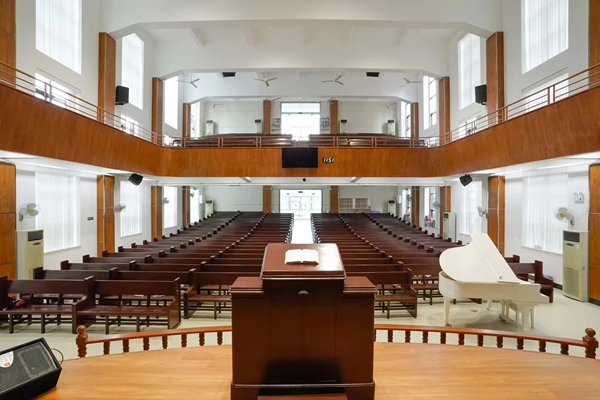"Why does believing in Jesus feel like clinging to outdated traditions?" This question was raised by a young pastor during my visit to a church in Anhui.
In most Chinese people's impressions, the Christian faith is associated with rigidity, seriousness, and traditional solemnity. Some might have experienced being reminded or even turned away for wearing short skirts and pants, or flip-flops, especially those young girls who love to wear anime-style clothing. If someone accidentally crosses their legs during a service, an auntie nearby may remind them or even push their leg down. Such experiences can indeed leave people puzzled, but all they can do is smile awkwardly.
Additionally, the unchanging format of church gatherings, elderly congregants, and the decreasing number of young people can easily give Christianity the impression of being "traditional and rigid," making it seem far from "fashionable."
However, as an organism, the church needs to change its gathering formats and improve its faith expression in response to the times and circumstances. Perhaps the journeys of the following two pastors can provide us with insights.
Pastor C works in a church in southern Anhui Province. Originally established by a Wenzhou evangelistic mission, it naturally had some characteristics of Wenzhou gatherings since its foundation. For instance, Sunday worship services lasted the whole day, and members would have lunch in it. However, Pastor C found some issues in practice. Since the faith foundation is not profound, believers generally have a shallow spiritual life and cannot stay in the church for a long time over one service. Forcing them to do so would result in some believers napping or gossiping around, which would cause controversy. Therefore, she adjusted by shortening Sunday service to half a day, and no lunch was served.
Additionally, it was a habit for congregants to chat casually. Pastor C set a rule that Christians could not talk during the service. "Some people would still talk, so I would sit next to them, listening intently to the sermon. Some people really disliked me for this, but gradually, a worshipful atmosphere was created."
This implementation caused some controversy at the time, with opposition from some elderly workers and congregants. But Pastor C continued to push forward and tried to unite with them. "Though some didn't understand, they agreed in the end as they trusted me."
In addition, Pastor C and her husband Pastor Y made some changes in the design of Sunday worship. Currently, the church has only traditional hymns, but for seekers and new believers, it may be difficult for them to know their meanings immediately. Therefore, Pastor Yang found online some modern worship songs that are easier to understand. The song list is printed on the Sunday leaflets. QR codes are provided for believers to scan and listen. The opening praise during worship also adopts styles that are more popular with young people.
Pastor D from Guangdong also has a poignant ministry journey. After graduating from seminary in 2002, he began serving at a rural church. Initially, he mainly assisted the elder pastor, taking care of his daily needs and leading the youth fellowship. At that time, the church only had pews, making it easy for children to fall. He and his wife wanted to buy some small stools, but the church leader thought it was a waste of money and refused. Later, they scoured the entire city to find some cheaper ones, using their own money to buy fifty or sixty small stools.
As the church he served was on a hill, the path to the church was very dark. When events like Christmas activities ended late, he worried about the congregants' safety when they went back home. He applied to the church to install streetlights, which would cost several thousand yuan. The leaders refused, thinking it wasn't worth it for one or two large gatherings a year.
But he didn't give up. Later, he called on nearby villagers to donate money. The supportive villagers donated over 7,000 yuan and supplied a few spare lamp poles, with streetlights installed.
Villagers walked along that path with these lights, unknowingly arriving at the church. Now, the road by the church is called Holy Church Road. Other parts of the village followed suit and installed streetlights.
Pastor D is also among the first to get a driver's license and buy a car with his own money, even though his finances were tight at the time. Later, when visitors came to the church for exchanges, he was responsible for picking them up and dropping them off.
After serving the elder pastor for seven years, Pastor D was ordained in 2009. Six months later, the elder pastor was bedridden and passed the leadership baton to him. Because of this experience, Pastor D was aware early on of the need to train staff workers and successors. Ten years later, when he left this church due to changes, the two millennial church workers he had trained began to undertake pastoral care work.
- Translated by Abigail Wu












